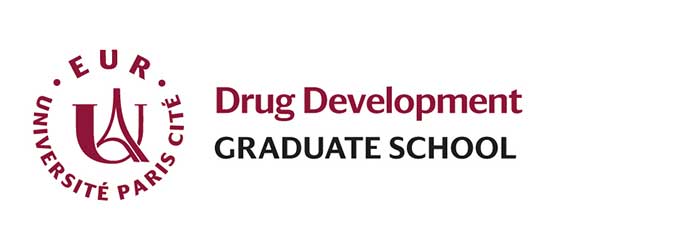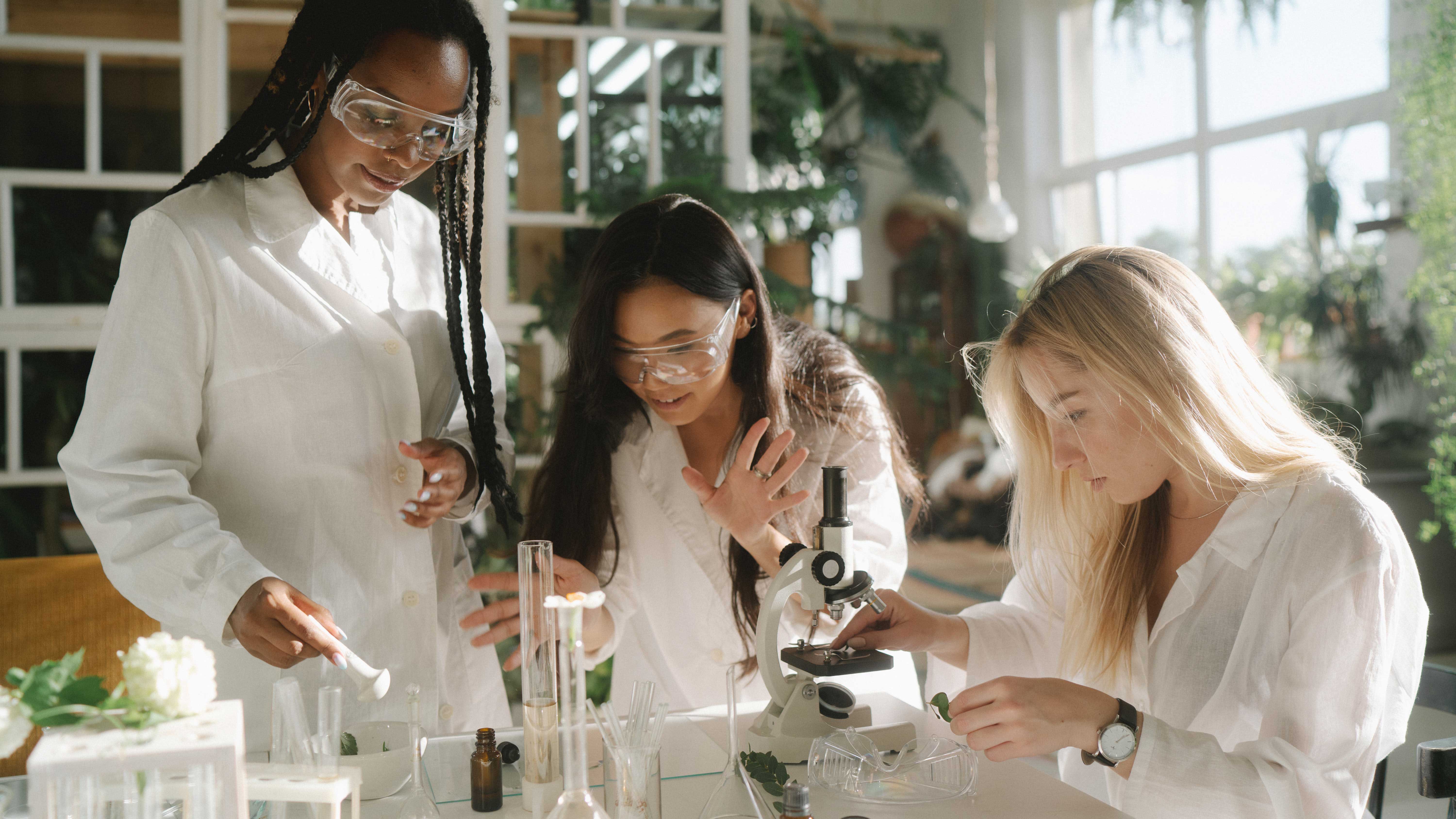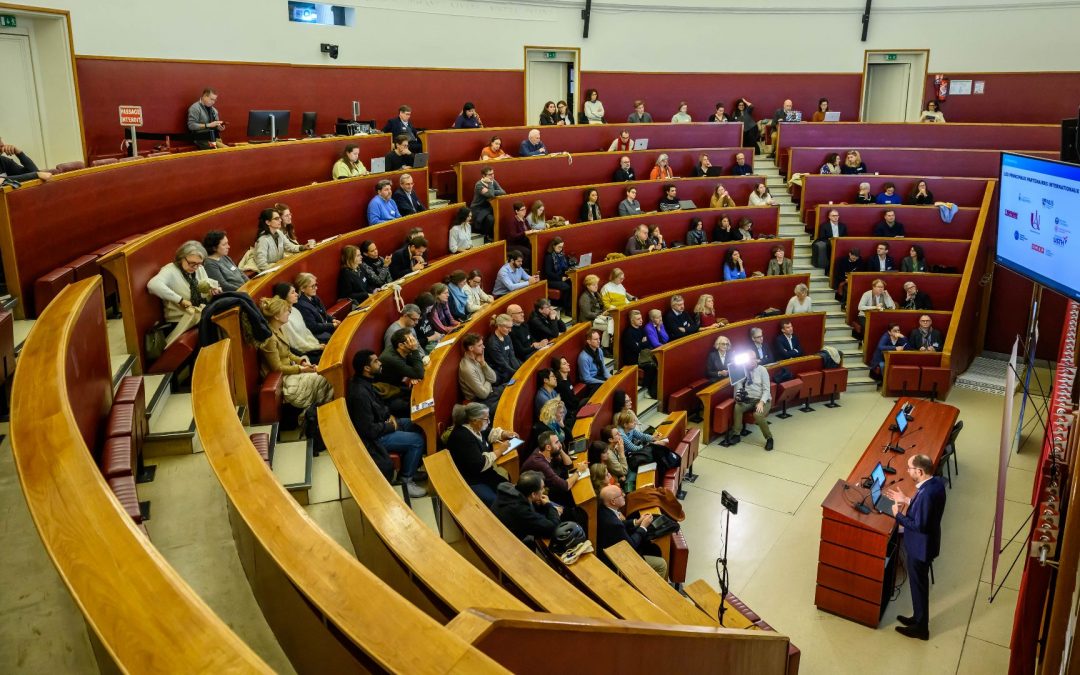Drug Development
The mission of the Graduate School of Drug Development is to cultivate a cadre of researchers and healthcare professionals who specialise in drug development, embracing a comprehensive approach that considers the entire life cycle of medications. This educational pursuit spans a wide array of disciplines, from foundational research to clinical applications, and encompasses both experimental and computational methodologies.
In pursuit of excellence in training, the Graduate School leverages the wealth of expertise found within the Masters programmes of the Faculty of Health and the Faculty of Science, forging close partnerships with numerous university research centers and teams. Furthermore, it fosters collaborations with hospitals and engages with stakeholders in the socio-economic sphere, particularly within the pharmaceutical industry. The overarching goal is to furnish students with a robust, hands-on education in the field of drug development.


Presentation
In an international context, the Graduate School of Drug Development collaborates closely with several French and European universities. Its programmes, primarily conducted in English, provide opportunities for students to earn dual degrees and/or receive Erasmus Mundus accreditation. It fosters strong connections with other graduate schools, including the École de Chimie Physique de Paris and the Graduate Schools of Innovative Therapies in Cancerology, Translational Bioinformatics, and One Health-Emerging Infectious Diseases.
The Graduate School of Drug Development attracts health science students, including veterinarians specialising in certain areas, as well as a diverse array of students from various higher education institutions. Its multidisciplinary approach allows individuals with scientific bachelor’s degrees in fields such as chemistry, biophysics, bioinformatics, biology, genetics, or related interdisciplinary fields, nationally and internationally, to enroll in its Master’s programmes.
Drawing on the expertise of the “Drug and Health Product Sciences,” “Nanomedicine,” “Toxicology-Ecotoxicology,” and “Bioinformatics: In Silico Drug Design” Master’s programmes offered by the Faculties of Health and Science, the Graduate School leverages its strengths in pharmaceuticals. This breadth of offerings is rare among universities, creating a dynamic and enriching learning environment enriched by the diverse backgrounds of its students.
Internship opportunities for Master’s students span across research units within Université Paris Cité and other French universities, as well as various prestigious institutes and laboratories (including INSERM, CNRS, IRD, Pasteur, Curie, CEA, and INRIA), pharmaceutical companies, and national drug agencies such as ANSM, ANSES, INERIS, INRS, and IRSN. These placements provide invaluable practical experience and networking opportunities within the drug development field.
Additionally, the Graduate School of Drug Development offers a range of sandwich courses designed to facilitate apprenticeship integration and foster closer ties with industry partners.
Contact
Anne-Claude CAMPROUX
anne-claude.camproux@u-paris-fr
Catherine MARCHAND-LEROUX
catherine.marchand@u-paris.fr
Michel VIDAL
michel.vidal@u-paris-fr
Masters
The Graduate School of Drug Development is mainly supported by masters degrees from the Faculties of Health and Science. The courses are taught in French and English.
- Drug development and health products:
- Biomolecular engineering
- Health products quality assurance
- Integrating preclinical and clinical pharmacology
- Medicinal chemistry and molecular pharmacology
- Pharmaceutics and innovative therapies
- Pharmacokinetics and pharmacotechnics
- Pharmacology and pharmaceutical chemistry
- Therapeutics – from design to application of health products
Research
To fulfill the academic and professional standards of the pharmaceutical sector, the Graduate School of Drug Development is dedicated to equipping students with the necessary training and expertise for success in research or the workforce.
Benefiting from a robust national and international network, the Graduate School provides diverse internship opportunities in academic and industrial environments. Industry professionals actively participate in course development by teaching in both Master’s and doctoral programmes. Moreover, the Graduate School of Drug Development hosts regular seminars and scientific events within its doctoral schools, fostering a forum for knowledge exchange and collaboration.
Laboratories
Due to its expansive scope, the Graduate School of Drug Development collaborates with numerous partner laboratories on both national and international scales. Leveraging this extensive network, which includes esteemed scientists, the school offers students unparalleled access to top-tier expertise across various disciplines. This diversified network opens doors to a wide array of internship opportunities, spanning academic and industrial settings alike.
Committed to equipping students with the requisite training and skills to address the evolving demands of both academia and the private sector within the pharmaceutical field, the Graduate School works closely with its associated Research Units (UMR) through collaborative doctoral schools.
For a comprehensive overview of the involved laboratories, please refer to the following links:
Doctoral schools
Thanks to the wide range of themes covered by the pharmaceutical field , students can join a number of doctoral schools of Université Paris Cité:
- 3C – Brain, cognition, behaviour (DS 158)
- BioSPC – Bio Sorbonne Paris Cité (DS 562)
- FIRE – Frontières de l’Innovation en Recherche et Éducation (DS 474)
- HOB – Hematology, oncogenesis and biotherapies (DS 561)
- MTCI – Médicament, Toxicologie, Chimie, Imageries (DS 563)
- Pierre Louis de Santé Publique, Epidémiologie et Sciences de l’Information Biomédicale (DS 393)
Executives
The Graduate School of Drug Development is managed by:
- Prof. Anne-Claude CAMPROUX
Faculty of Science - Prof. Michel VIDAL
Faculty of Health
The steering committee of the Graduate School is formed by:
- Karine ANDRIEUX
- Armelle BAEZA
- Valérie BESSON-CORDONNIER
- Xavier COUMOUL
- Ludovic JEAN
- Olivier TABOUREAU
À lire aussi

Unlock Tech Transfer: une série de vidéos pour comprendre le processus d’innovation et le transfert de technologie
Le transfert de technologie reste souvent méconnu ou entouré d'idées reçues qui peuvent freiner l'innovation issue de nos laboratoires. Inscrite dans le cadre du projet ValoCité, Pôle Universitaire d’innovation de l’Université Paris Cité bénéficiaire du plan...
![[Cardiovascular Sciences] “Open UE”: looking back on an interdisciplinary adventure!](https://u-paris.fr/wp-content/uploads/2025/12/Sans-titre-1920-x-1080-px58-1080x675.jpg)
[Cardiovascular Sciences] “Open UE”: looking back on an interdisciplinary adventure!
The “open UE”, launched by the Graduate School Cardiovascular Sciences, brought together researchers, clinicians, and experts from diverse fields for a week to explore major issues in biomedical and translational research. Open to all students across the 29 Graduate Schools of Université Paris Cité, it offered a unique space for learning and interdisciplinary exchange.

Le 24 novembre 2025, la deuxième édition de Convergences a célébré l’alliance entre l’Université Paris Cité et l’Ecole nationale vétérinaire d’Alfort
Plus d’un an après la première édition de Convergences qui célébrait le partenariat de l’Université Paris Cité avec l’Institut Pasteur, cette deuxième édition qui s’est tenue le 24 novembre sur le site Odéon, célébrait l’alliance stratégique de l’Université Paris Cité...
![[Cardiovascular Sciences] UE d’ouverture : retour sur une aventure interdisciplinaire](https://u-paris.fr/wp-content/uploads/2025/12/Sans-titre-1920-x-1080-px58-1080x675.jpg)
[Cardiovascular Sciences] UE d’ouverture : retour sur une aventure interdisciplinaire
L’UE d’ouverture, initiée par la Graduate School Cardiovascular Sciences, a réuni pendant une semaine des chercheuses et chercheurs, cliniciennes, cliniciens, expertes et experts de différents horizons pour explorer les grands enjeux de la recherche biomédicale et...
